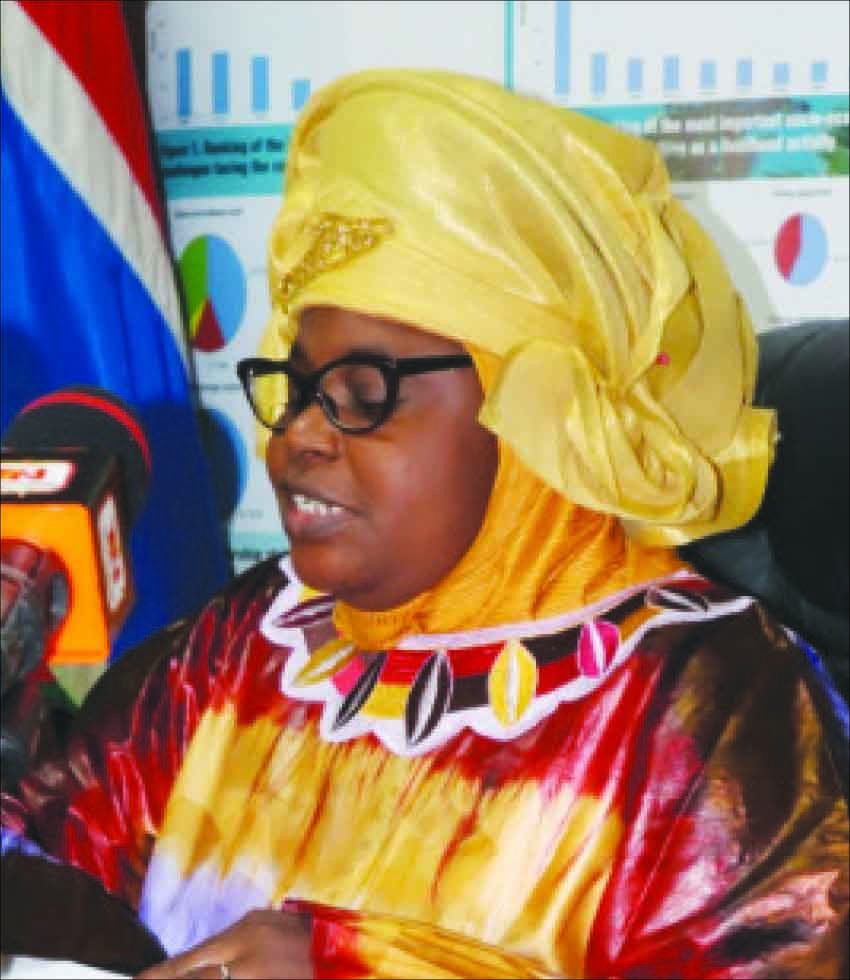By Fatou Sanneh
The Minister of Environment, Climate Change and Natural Resources has declared four Indigenous Community Conserved Areas (ICCA) in the Central River Region, and Marine Protected Area at Hallahein in Kartong, as protected.
Hon. Rohey John-Manjang recently made this declaration at a press conference held at the Ministry.
The areas declared protected are Kartong/Hallahein Marine Park, Niani Sukuta, Niani Kayayi, Jailani Bakadagi, and Jarumeh Koto Swamp lands.
This declaration is in accordance with the provision of Biodiversity and Wildlife 2003 Act, PART 3, Section 14, Establishment of Protected Areas.
According to the Minister, the declaration is in recognition of ownership rights of the communities and indigenous people traditionally settled in the area. The move aimed to conserve biodiversity and wildlife for sustainability use.
“The establishment of protected areas is considered as the most cost-effective means for conserving gene species, habitats, and ecological processes, and is also considered one of the most important onsite tools for biodiversity conservation,’’ she stated.
In response to international environmental obligations, the government of The Gambia wishes to strengthen its commitments to the CBD, International Trade in Endangered Species of Wild Fauna and Flora (CITIES), and the Convention of Westland of International Importance (RAMSAR).
In fulfilment of these commitments, from 1963 to 2020, a total of twenty of 23 protected areas have been established covering an area of more than 96 thousand hectares.
The Government of the Gambia through the United Nations Environment Programme (UNEP) has secured financial aid from the Global Environment Facility (GEF) to implement the GEF-6 Lands/Seascape Planning and Ecosystem Restoration Project.
The objective of the project is to create an enabling environment for the Gambia in building national capacity to lead the reform of land use and marine spatial planning policies and to implement land/seascape management that conserves ecosystem services and facilities.
The development of a process framework for the establishment of these protected areas is a key milestone in achieving the project objectives, as well as national efforts in conserving the remaining flora and fauna in the country.







